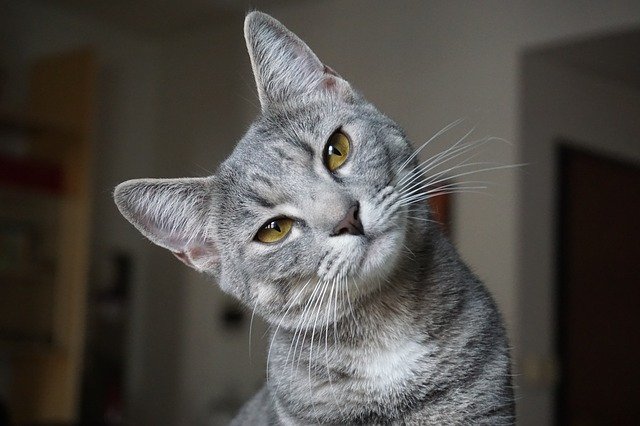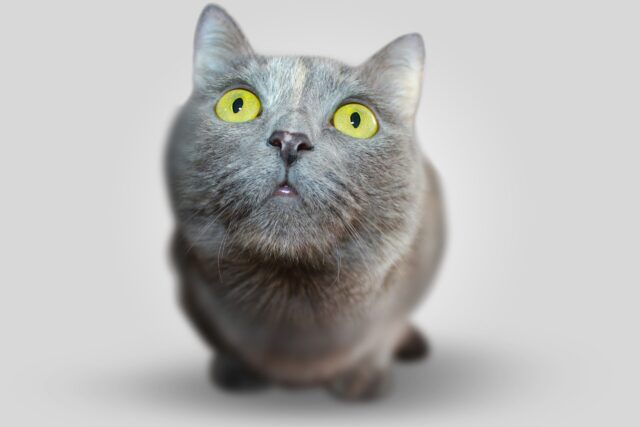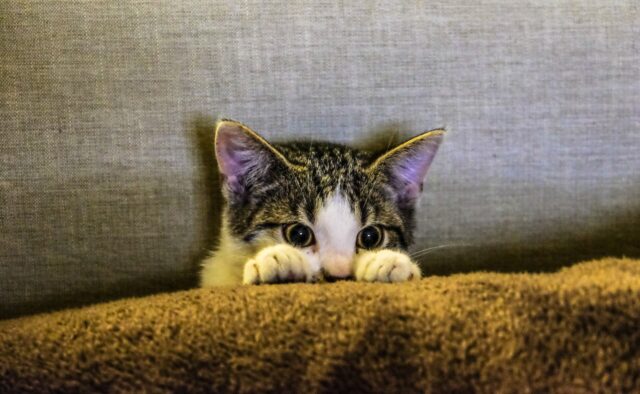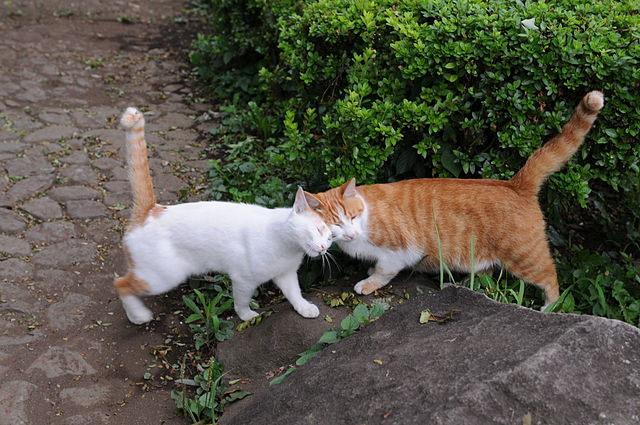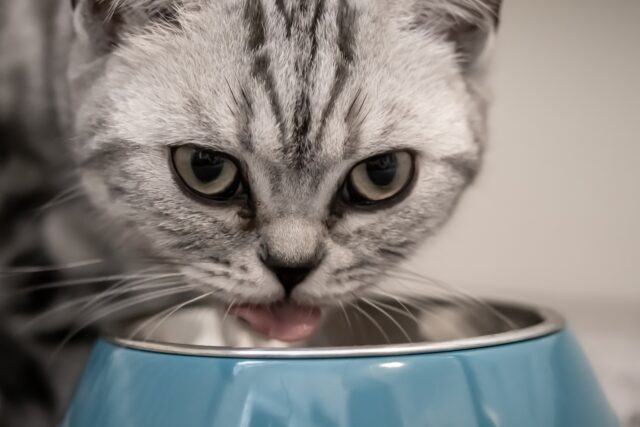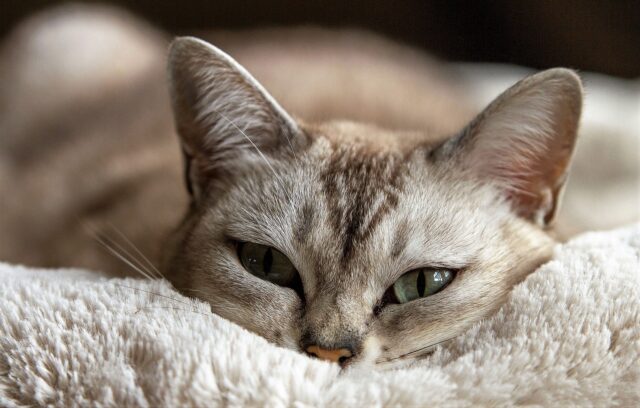With the revelation that house cats and big cats can contract the novel coronavirus and become sickened by COVID-19, cat parents are concerned. But try not to worry, just stay the course and include your cats in the COVID-19 safety precautions you’re already practicing. Also know, the infection rates of COVID-19 in cats is very small.
And, the two most important things to remember when it comes to cats and COVID-19:
- If your cat exhibits symptoms of illness, contact your veterinarian.
- Never abandon or give up your cats.
The Bronx Zoo Tigers and Lions
Nadia, a four-year-old Malayan tiger at the Bronx Zoo in New York City, NY, tested positive for COVID-19 in early April, making her the first animal in the U.S. to test positive. The tiger started showing symptoms of COVID-19 on March 27th, displaying a dry cough and loss of appetite. When the symptoms developed, the Wildlife Conservation Society, the group operating the Bronx Zoo, decided to test Nadia out of precaution. The results were “confirmed by USDA’s National Veterinary Services Laboratory,” according to a statement by the WCS.
Dr. Summer McGee, head of the School of Health Sciences at the University of New Haven, reports, “Cats, including big cats, are known to be susceptible to coronaviruses, and it turns out COVID-19 is no exception.”
Zoo administration can only guess where Nadia picked up the illness, but theories suggest a handler was probably an asymptomatic carrier or had not yet developed symptoms and transmitted the virus to her. This kind of human to animal transmission is a rare occurrence though.
Unfortunately, since Nadia’s infection, seven other big cats at the Bronx Zoo have now tested positive for COVID-19 as well.
Nadia’s sister, Azul, as well as another tiger and 3 African lions have experienced illness symptoms. A fourth tiger never displayed any symptoms, yet still tested positive.
Regarding the condition of cats, the WCS reported, “Though they have experienced some decrease in appetite, the cats at the Bronx Zoo are otherwise doing well under veterinary care and are bright, alert, and interactive with their keepers.”
As the weeks have passed, the sick tigers and lions are doing well. An updated statement from the WCS announced, “They are behaving normally, eating well, and their coughing is greatly reduced.”
Staff expects full recoveries by all eight big cats. The WCS also shared, “None of the zoo’s snow leopards, cheetahs, clouded leopard, Amur leopard, puma or serval are showing any signs of illness.”
The Bronx Zoo has put safety measures in place to limit contact between staff and the big cats while still maintaining the quality care of the animals.
The American and Belgian House Cats
In late March, news broke from Belgium regarding a companion cat testing positive for COVID-19. The cat was exposed to a COVID-19 positive family member and, soon after, began showing symptoms of COVID-19. The Belgian government confirmed this to be true. The domestic cat’s symptoms were reported as vomiting, diarrhea, and respiratory issues. Officials said the cat recovered after 9 days of illness.
And now, recent days have brought news of two American house cats contracting COVID-19. On April 22, the CDC confirmed two American cats tested positive for COVID-19 after suffering “mild respiratory illness”. Both felines “are expected to make a full recovery.”
Both infected cats live in New York state, but in different areas of the state. These two cases are in no way related.
In the case of the first cat, the CDC reported, “No individuals in the household were confirmed to be ill with COVID-19. The virus may have been transmitted to this cat by mildly ill or asymptomatic household members or through contact with an infected person outside its home.”
Infection in the second cat occurred after exposure to a human family member who had tested positive for COVID-19. The CDC also commented, “Another cat in the household has shown no signs of illness.”
In both cases, the house cats were believed to be infected by a human.
Now that we are aware cats can be infected by this latest coronavirus, it’s time to remain informed and do everything possible to protect our felines from illness. To better understand the situation, let’s define the terms coronavirus and COVID-19 as well as examine any questions you might have regarding cats and COVID-19.
Coronavirus and Covid-19, Different Terms, Related Definitions
Let’s explain these terms and how they differ and relate.
Coronavirus
The CDC tells us, “Coronaviruses are a large family of viruses that are common in people and many different species of animals, including camels, cattle, cats, and bats.”
In humans, coronavirus infections cause upper respiratory illnesses like the common cold or pneumonia. When it comes to cats, felines typically contract different types of coronaviruses than humans, one of them known as Feline Coronavirus or (FCoV). And ShelterMedicine.com plainly states, “Feline Coronavirus is not the same coronavirus that is the cause of COVID-19 illness in humans.”
But as we have learned in recent weeks, humans and cats can both be infected and sickened by this latest coronavirus, known scientifically as SARS-CoV-2.
COVID-19
The WHO explains, “Viruses, and the diseases they cause, often have different names.” In the case of the coronavirus afflicting the globe at this time, SARS-CoV-2 is the name of the particular coronavirus that causes the illness COVID-19.
Meriam Webster defines COVID-19 as: “a mild to severe respiratory illness that is caused by a coronavirus (Severe acute respiratory syndrome coronavirus 2 of the genus Betacoronavirus), is transmitted chiefly by contact with infectious material (such as respiratory droplets), and is characterized especially by fever, cough, and shortness of breath and may progress to pneumonia and respiratory failure
NOTE: COVID-19 was first identified in Wuhan, China in December 2019.”
So, boiled down…a coronavirus is one of many viruses that cause respiratory illnesses and COVID-19 is an illness caused by a coronavirus called SARS-CoV-2.
Your Questions Regarding Cats and COVID-19
Can cats get COVID-19?
Yes. We have learned the SARS-CoV-2 coronavirus can infect cats. Once infected, cats can fall ill with COVID-19.
With symptoms such as dry cough and lack of appetite, Nadia the tiger and the other Bronx Zoo big cats have proven this knowledge to be true. The house cats in New York displayed respiratory symptoms and the Belgian cat seemed to have more severe COVID-19 symptoms with diarrhea and vomiting accompanying the respiratory issues.
But what similarities between cats and humans allows for a specific virus to infect both species?
For an interview with LiveScience.com, Steven Van Gucht, virologist and coronavirus spokesperson for Belgium explained, “Cats and humans appear to have a similar ‘doorknob’ on the surfaces of respiratory cells that lets the SARS-CoV-2 virus get inside”.
This “doorknob” is actually called ACE2 and it’s a protein receptor on the outside of respiratory cells. The ACE2 receptor is where the coronavirus attaches and then invades the cells. And Van Gucht said, “The feline ACE2 protein resembles the human ACE2 homologue,” meaning a similarity in the physical build of our cells allows both cats and people to be infected by SARS-CoV-2.
Can people infect cats with COVID-19?
Humans can infect cats with COVID-19 as we’ve learned by the Bronx Zoo big cats and the Belgian housecat.
In a study supported by the National Key R&D Program of China, a team of researchers very recently learned cats and ferrets are susceptible to SARS-CoV-2 infections. The team reported, “SARS-CoV-2 replicates poorly in dogs, pigs, chickens, and ducks, but ferrets and cats are permissive to infection. We found experimentally that cats are susceptible to airborne infection.”
While cats can be infected by humans, the transmission from person to cat is a rare occurrence. But, it’s still a good idea to keep your cat socially distanced from others at the moment. Be sure to keep cats away from any person or other cat that has been exposed to SARS-CoV-2 or fallen ill with COVID-19.
Can cats infect humans with the coronavirus that causes COVID-19?
So far, no. There have been no reports of a person becoming ill with COVID-19 because of infection by a cat.
“The mode of transmission appears to be one way—human to cat—and there is no evidence yet of transmission the other way,” according to Dr. McGee.
“Even so, the CDC is recommending COVID-19-positive patients isolate from house cats as we do not yet know the health consequences for our pets, nor do we know absolutely that they aren’t asymptomatic carriers.”
Can cats infect each other with COVID-19?
In the cat world, there are certain coronaviruses that afflict only cats and these viruses can be transmitted between them. While SARS-CoV-2 first transmitted to cats from humans, recent research reveals, once a cat has been infected with this novel coronavirus, the affected cat can then spread SARS-CoV-2 to other cats.
As reported by The Guardian, a team of scientists in China have learned cats can spread the virus to each other. But their experiment exposed cats to a large volume of SARS-CoV-2 in order to induce infection. Indeed, healthy cats exposed to infected cats did pick up the virus, with one displaying symptoms of COVID-19 while others did not.
So, while this does prove the transmission of SARS-CoV-2 is possible between cats, the experiment was not a real-world setting. Likely, cats will not be exposed to a huge dose of the virus in their homes. Still, practice caution and keep cats separated if one cat displays illness.
What supplies should I have on-hand for my cat?
As you stock up on supplies for you and your family, don’t forget the furry family members. Be sure to have enough food and litter on hand for 2 – 4 weeks. If your cat takes medicine, be sure you purchase a month-long supply of those too. Don’t let your cat run out of life-saving prescriptions!
Also, keep identification tags and vet records handy. Having a cat carrier at the ready is also a good idea. VeterinaryPracticeNews.com suggests having these items, along with food and medicines, already prepared in case you get sick and you need them readily available for your cat’s caretaker.
Should I bathe my cat to help avoid COVID-19?
We’ve recently learned “the virus that causes coronavirus disease 2019 (COVID-19) is stable for several hours to days in aerosols and on surfaces,” according to the National Institutes of Health. So, if your cat has come in contact with someone infected by COVID-19, then a bath might be a good idea to protect the both of you.
To avoid having to bathe a cat who doesn’t like baths, restrict visitors in your home.
Can I take my cat to the vet?
Postpone wellness visits for annual vaccinations and workups until the threat from COVID-19 subsides. The less you leave your home, the lower the risk of contracting COVID-19. But, if your cat is experiencing a medical emergency, then contact your vet and proceed with their instruction.
What if my cat has COVID-19 symptoms?
Contact your vet in you suspect any illness in your cat.
The CDC recommends the following guidelines when it comes to cats and COVID-19:
- Don’t allow your furry family members to interact with people or other animals outside the household.
- Keep cats inside when possible to prevent them from interacting with other animals or people.
- If you become ill with COVID-19, whether suspected or confirmed, avoid contact with your cats and other animals.
If you are ill, the CDC suggests:
- When possible, have another member of your household care for your cats and other companion animals.
- Avoid contact with your animals. This includes petting, snuggling, kissing, and sharing food or bedding.
- If you have no other choice and you are the only one to care for your cat while you’re ill, wear a mask and wash hands before and after interacting.
Keep Your Cat Safe While You’re Disinfecting Your Home
In this time of deep cleaning and disinfecting, be sure to keep your cats safe from harmful chemicals. And while you’re cleaning like crazy, be sure to wash food and water bowls. Disinfect beds and blankets as well. Be sure to keep everyone safe and healthy by keeping chemicals out of cat paws.
If a poison emergency does arise, contact ASPCA’s Animal Poison Control.
ASPCA Animal Poison Control Center Phone Number: (888) 426-4435
Getting Through Trying Times with Your Cat Bestie at Your Side
We may be stuck at home for a while, but there is a bright side. Your cat! Pass the hours with lots of fun stuff you and your cat can do together!
And please remember this above all else…never abandon your cat! In these times of uncertainty, our cats need us more than ever. Keep you and your furry ones safe by heeding quarantine notices and government mandates. Also know, you’re not alone. We’re all in this together.
Feature Image: www.cdc.gov

